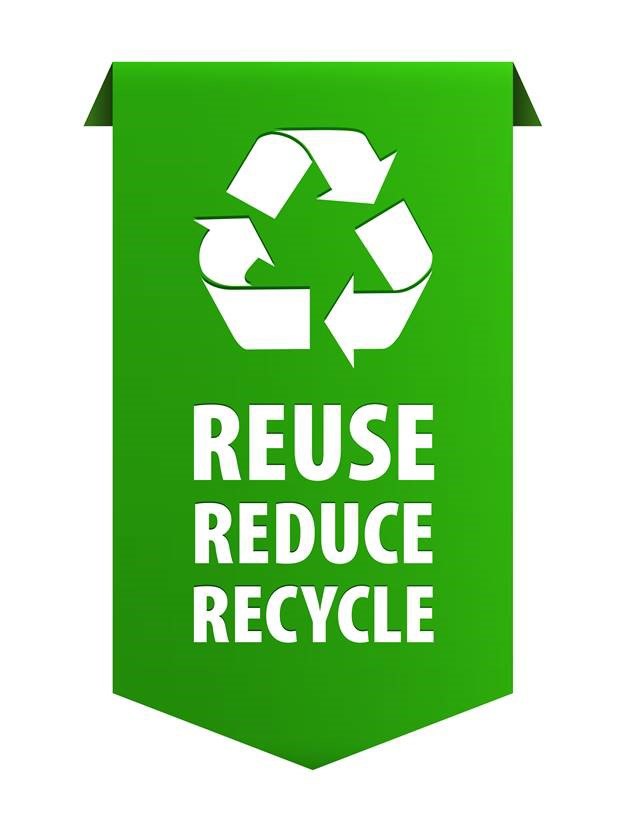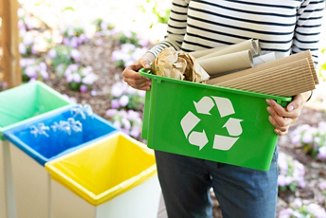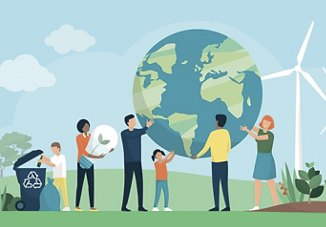Recycling - Know the Facts
The EPA just issued its latest report on recycling in the US, and some of the numbers are astounding. We rarely think about where our trash goes when we throw it away, but when you add it all together, it is a staggering amount of waste. As it turns out, Americans generate 250 million tons of trash yearly or 4.38 pounds per person per day and over half ends up in landfills. Those of us interested in sustainability and green apartment living can really help those numbers by learning the three R’s: not reading, writing and arithmetic, but Reuse, Reduce and Recycle.
The EPA’s report has very detailed information about Municipal Solid Waste (MSW) generation, recycling and disposal for 2012, the latest year available right now. MSW is basically household waste or the stuff that people generally throw away after use. It does not include industrial, hazardous or construction waste, but it does include commercial waste from businesses, schools and hospitals. The EPA has been collecting this information for over 30 years, so they have pretty good data. Here are some highlights:
- Trash generation per person peaked in 2000 and has been trailing down ever since.
- Recycling has increased from less than 10% in 1980 to 34.5% in 2012.
- 96% of lead-acid batteries are recycled, 70% of newspapers, and 55% of aluminum cans, but only 31% of plastic soda and water bottles.
- 12% of our trash is burned for energy recovery.
- 54% of our trash goes to the landfill, but this is down from 89% in 1980.
Now that we’ve thrown all these big numbers at you, you may be wondering what you can do to help. That’s where you need to go back to the three steps: Reuse, Reduce and Recycle.
REUSE – Throw away less stuff and don’t buy stuff that has to be thrown away after one use. For example, don’t buy plastic water bottles - use a cup or a reusable container. Try reusable canvas grocery bags. Donate your old clothes or other items so they can be used by someone else. Don’t throw away stuff that can be reused or repaired.
REDUCE – Don’t buy more than you need. Buy items with less packaging or products made from recycled materials. Print on both sides of paper (and use recycled paper). Buy energy efficient light bulbs and rechargeable batteries. Get off those junk mailing lists and sign up for electronic statements and bills.
RECYCLE – Recycle more than one-third of your trash. Think twice before throwing an item in the trash can. 95% of your food waste can be composted and so can your yard waste. Most paper, packaging, magazines and catalogs can be recycled. Take a hard look at what you are throwing away – are there any bottles or cans in there?
This is one area where everyone can make a difference, and small changes in our behaviors can have a huge impact on our planet.



